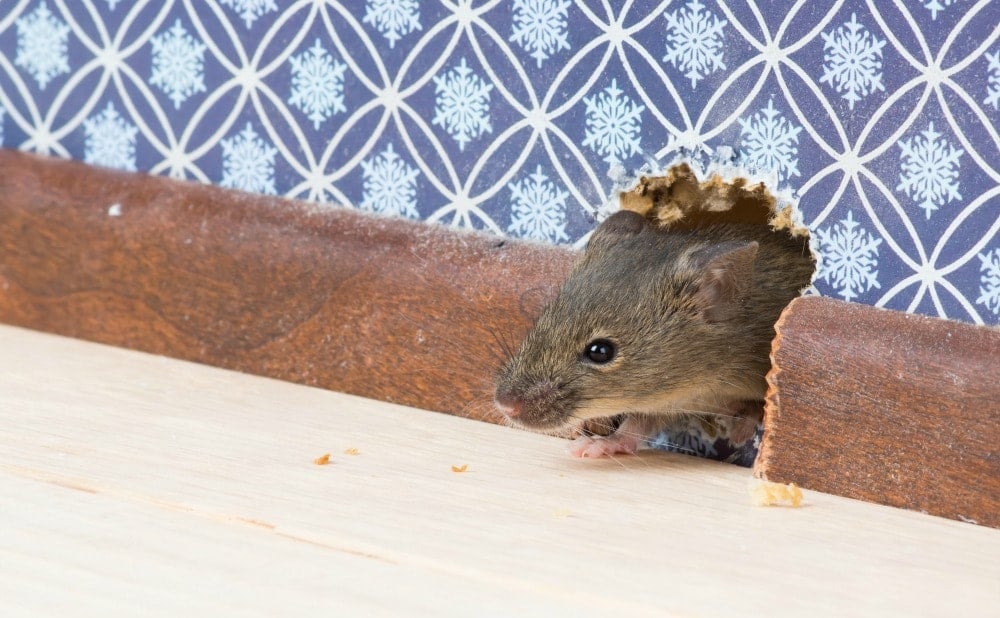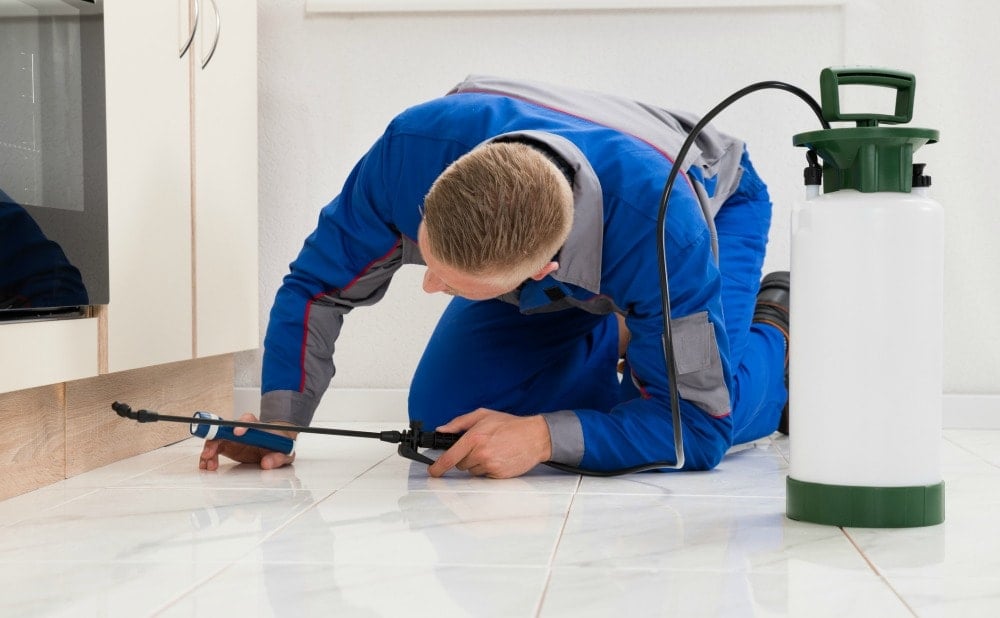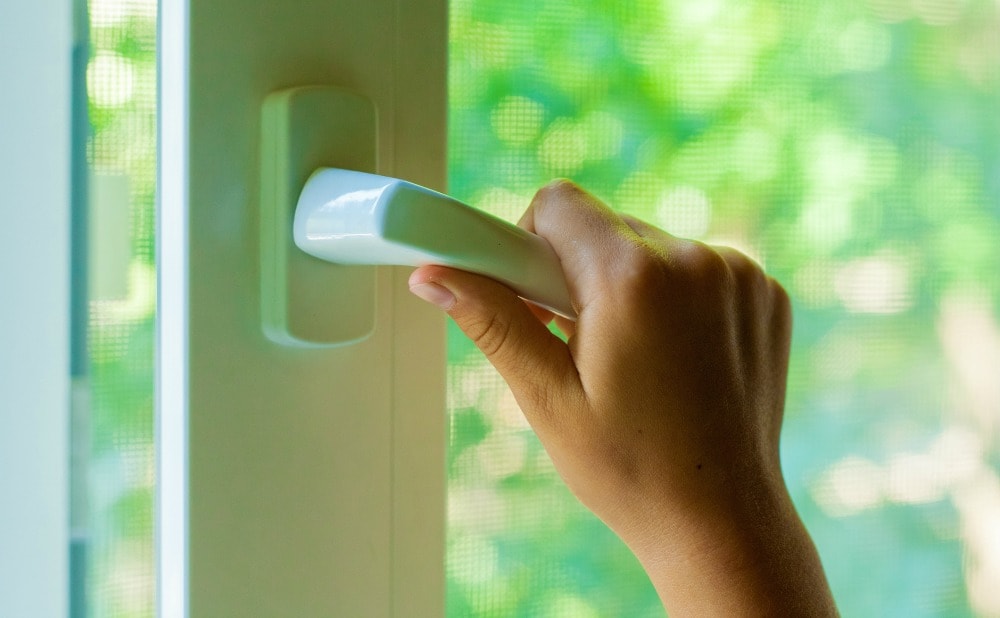 In the past, we have discussed some of the legal considerations Howard County property owners should be aware of when it comes to pest control in a rental property.
In the past, we have discussed some of the legal considerations Howard County property owners should be aware of when it comes to pest control in a rental property.
In short, as a property owner you are legally responsible for providing a pest-free property to your tenants upon the start of a lease term. From there, you can either offer your tenants pest control services or hand over the responsibility of maintaining a pest-free property entirely to them.
Now that you know some of the best ways to prevent a pest infestation in your investment property while it is occupied by tenants, we are going to focus on how to handle pest control whether a tenant occupies the property or not.
Pest Control in Your Howard County Rental
Everyone knows that bugs and rodents can quickly turn into a property owner’s biggest nightmare. And the truth is, no matter how old your property is, there is always the possibility that unwanted pests will enter your property during a vacancy and expose themselves once new tenants take up residence.
Battling pest problems in your Howard County rental property is best accomplished by understanding the causes of pest infestations as well as having pest prevention strategies on hand that both you and your tenants can use.
Common Causes of Pest Infestations
Here are some of the most common ways pests or rodents can enter your Howard County rental, regardless of whether it is vacant.
Doors and Windows
Doors that do not seal tightly against thresholds and windows with worn weather-stripping make for easy entryways for common household pests. More so, doors that lack door sweeps and windows that have screens with holes in them are also obvious ways small pests can invite themselves into your property.
Vents and Exhaust Fans
Though you probably do not give much thought to the air vents in your ceilings or the exhaust fans in the back of your property’s dryer unit, the fact is that many bugs and even small rodents do. Crawling through your home’s internal maze of vents, pests such as insects and rodents can easily sneak past improperly sealed vents and exhaust fans.
Property Foundation
Cracks in your rental’s foundation will lead the way directly into your property if you are not aware that they exist and if you do not fix the problem immediately. Any time there is an eroded barrier between your property and the soil, there is a chance that pests will enter the property and take up residence right alongside your tenants.
Chimney Caps
Small rodents such as squirrels, birds, raccoons, and other critters love to make their homes inside of unused chimneys. After all, a sturdy chimney keeps rodents well hidden from predators and offers great protection from the harsh weather.
Walls
Inside your property’s walls, there are thousands of wonderful places for pests and rodents to cozy up in and call home. The problem with walls is that anytime you have something passing through your wall (such as a pipe, electrical wire, or ventilation item), a new entryway is created for bugs and rodents to use.
How to Deal With Those Pesky Pests
Now that you have a good idea of what causes pests to enter your rental property, let’s further discuss how to handle the problem of a pest infiltration before it gets out of hand and you are forced to call in the experts.
1. Put Food Away

It may seem obvious that leaving out open food will invite pests and small critters to help themselves to their next meal. However, time and again people leave open food containers out or fail to clean up crumbs or food messes from cooking. By encouraging tenants to clean up after themselves, you will cut down on many of the pest problems tenants typically complain about during their lease term.
In other words, if you make a mess clean it up. If you have leftover food place it in airtight-sealed containers. If you eat somewhere other than at the table, bring all remnants of food, dishes and utensils to the kitchen for washing.
2. Delegate Landscaping Duties
If you have a rental property with lots of greenery in both the front and backyards, delegate in the lease agreement who will be responsible for maintaining the yards. This may mean offering your tenants a monthly landscaping service to handle the yard work for them. Or, this may mean your tenants will take on the responsibility of cutting back large shrubbery, hauling in extra wood, or trimming tall grass.
In the end, no matter whose duty it is, the very act of regular landscaping will help reduce the amount of pests that take up home in your yard. In addition, it will also significantly lower the chances these same pests will eventually crawl over to your rental and let themselves in to live.
3. Inspect Your Property
As mentioned above, things such as worn windows and doors can allow pests and rodents to easily enter your property both when tenants are residing there and when your property is vacant. Either way, this problem needs immediate handling.
Did you know mice only need a dime size hole to crawl through to get into your rental and rats only need a quarter sized hole?
This disturbing fact alone should be enough to get you and your property management company into gear when it comes to regularly inspecting your property for natural wear. Start by fixing screens in the windows and doors that have tears, installing new door sweeps on all doors, and making sure windows seal tightly when they close. In addition, any holes in the walls, both inside and outside your property, should be properly sealed to discourage rodents from entering. Altogether, this small task of regularly inspecting your property will have a dramatic impact on what kind of rodents pop up in your rental unannounced.
4. Enlist a Professional

If your rental property is in an area known for being wrought with insects and rodents, consider offering your tenants pest control services to keep pests and rodents to a minimum. You can even have your property management company write into the signed lease agreement that any pest issues that arise in-between service times will become the tenant’s responsibility. This way you are both you and your tenants are working together to keep pests at bay.
Before your Howard County rental becomes infested with pests and rodents and the heavy hand of a professional exterminator is needed, be proactive and handle the issue of pest control yourself. By implementing some easy preventative strategies, as well as taking action to keep things under control, the likelihood of you or your tenants experiencing any major pest problems is greatly reduced.
In addition, drafting a solid lease agreement that outlines both you and your tenant’s responsibilities regarding pest control will help prevent the chance of having to deal with a landlord-tenant dispute.
One great way to make sure you get the most legally compliant and thorough lease agreement is to enlist the help of Howard County’s best property management company, Bay Management Group. With an experienced staff that deals only in property management, Bay Management Group property managers can get you the highest quality tenants that will not let pests become an issue in your property in the first place. In addition, we will draw up an exceptional lease agreement that both you and your tenants can agree to.
So, contact us today and see how Bay Management Group can help you manage your rental property and ensure that pests and rodents will not be welcomed into your property without a fight.

